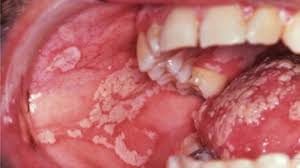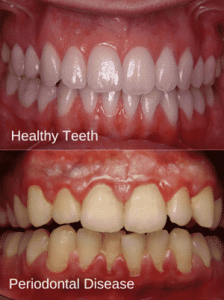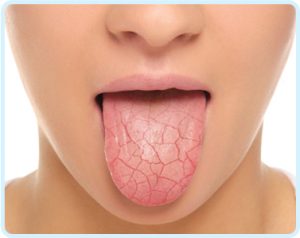It is well-known that your oral health affects your overall health. But did you know that dental health has correlations to diabetes, Alzheimer’s disease, and heart disease? In this series of blog posts, we’ll be delving into how oral health is linked to such extreme health conditions and what you can do about it.

How are Oral Health and Diabetes Related?
As is widely understood, diabetes is a disease which inhibits your body’s production of insulin (a hormone needed to convert glucose into energy). Without insulin, your body doesn’t get enough energy and your blood sugar level is unhealthily high.
If diabetes is left untreated (or is poorly managed), it leads to the impairment of the immune system. This, in turn, disempowers the body’s fighting response against bacterial and/or fungal infections. Diabetics, therefore, are more susceptible to periodontal disease and oral thrush (a fungal infection which presents as painful white patches in your mouth).

Periodontitis is known as the sixth complicating factor of diabetes. In the previous blog posts of this series, periodontal disease was explored as a contributing factor to increasing the risk of cardiovascular diseases and Alzheimer’s disease. However, if you want a td;lr, chronic periodontal disease is prolonged and severe gum inflammation caused by bacterial infection.

Having diabetes leads to a higher chance of developing periodontal disease (up to 4 times more likely than non-diabetics). It can slow down the healing process if you’re looking at getting your periodontitis treated or you’re going in for oral surgery. There has also been some research suggesting that periodontitis may predict the advancement of end-stage kidney disease in diabetics.

Diabetes may also cause a reduced production of saliva. Saliva is incredibly important as it is the natural mechanism to rinse out anything that may be harmful for the mouth. With reduced saliva production, this can easily lead to dry mouth (xerostomia) which contributes to tooth decay, ulcers, inflamed oral soft tissue, difficulty chewing and swallowing, and infections. What little saliva the mouth does produce would have a high sugar level which also impacts tooth decay and oral thrush.
What are the Symptoms of Diabetes?
If you are unsure about whether or not you are diabetic, consult your general practitioner to get a blood test and thorough assessment of your condition.

People suffering from diabetes generally feel the following symptoms:
- Persistent hunger or thirst
- Persistent fatigue
- Unexplained weight loss
- Slow or poor healing of bodily wounds (including bruises, sores, etc.)
- Need to urinate often
- Blurry or unfocused vision
- Gingivitis or periodontitis
- Difficulty tasting food
- Dry mouth
- Dry and irritated skin
- Tingling or numbness in hands and feet

Breaking the Cycle
Early diagnosis is important to effective treatment and management of diabetes. Unfortunately, people often don’t pick up on the warning signs until it’s too late.
Research has suggested that diabetes and periodontal disease are in a damaging cycle: diabetics are a lot more likely to develop periodontitis if left untreated, and severe gum disease can contribute to an increase in blood sugar levels and worsen diabetes.
Therefore, in our next blog post, we will discuss how to stop this cycle and how to look after your general health by taking care of your oral health.

